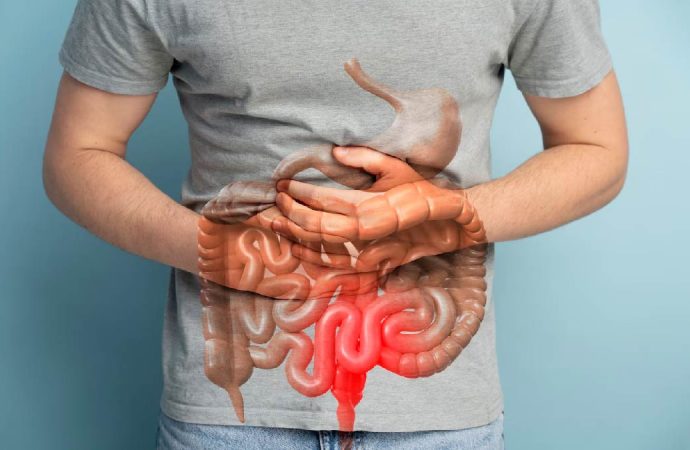Introduction Colon cancer has long been considered a disease that mostly affects older adults. However, in recent years, doctors have seen a concerning trend—more young people in their 20s, 30s, and early 40s are being diagnosed with this condition. This shift has surprised many experts and raised questions about what might be driving the increase.
Introduction
Colon cancer has long been considered a disease that mostly affects older adults. However, in recent years, doctors have seen a concerning trend—more young people in their 20s, 30s, and early 40s are being diagnosed with this condition. This shift has surprised many experts and raised questions about what might be driving the increase.
While lifestyle factors, diet changes, and genetic risks may play a role, the exact reasons are still being studied. What’s clear is that awareness, early detection, and healthy living are essential for lowering the risk. In this article, we’ll explore why colon cancer is becoming more common in younger adults, the signs to look out for, and practical steps to protect your health.
Understanding Colon Cancer
Colon cancer, also called colorectal cancer, develops in the colon or rectum, which are parts of the digestive system. It often begins as small growths called polyps. Some polyps are harmless, but others can turn into cancer over time. Detecting and removing these polyps early can prevent cancer from developing.
Traditionally, colon cancer screenings were recommended starting at age 50, but the rise in younger cases has led many health experts to advise beginning earlier, sometimes as young as 45—or even sooner for those with a family history of the disease.
Why Are Cases Rising in Young People?

Image by: Yandex.com
Researchers are still working to understand why colon cancer rates are going up among younger adults, but several possible factors have been suggested:
- Diet Changes: Increased consumption of processed foods, red meat, and sugary drinks may contribute to digestive system inflammation.
- Sedentary Lifestyle: Less physical activity can slow digestion and increase the risk of colon problems.
- Obesity: Higher body fat levels are linked to inflammation and hormonal changes that may affect cancer risk.
- Gut Health Changes: Shifts in gut bacteria caused by diet, antibiotic use, or other factors may play a role.
- Family History and Genetics: Inherited conditions like Lynch syndrome can raise the risk at a younger age.
Even people without these factors have been diagnosed, which is why awareness for everyone is so important.
Symptoms to Watch For
One of the biggest challenges with colon cancer is that it can develop without noticeable symptoms in its early stages. However, there are warning signs that should not be ignored, especially in younger adults:
- Blood in the stool or rectal bleeding
- Persistent changes in bowel habits (diarrhea, constipation, or narrow stools)
- Abdominal discomfort or cramps that do not go away
- Unexplained weight loss
- Ongoing fatigue or weakness
If you notice these symptoms, it’s important to see a doctor. Early detection can make treatment far more effective.
The Role of Screening
Screening tests can find polyps before they turn into cancer or detect cancer early when it is easier to treat. The most common screening method is a colonoscopy, which allows doctors to examine the colon directly and remove any suspicious growths.
Other screening options include stool tests that check for hidden blood or abnormal DNA. Discussing your personal risk with your doctor will help you choose the right type and timing of screening.
Lifestyle Choices That Lower Risk
While not all cases can be prevented, certain lifestyle changes can help reduce your chances of developing colon cancer:
- Eat More Fiber: Foods like fruits, vegetables, beans, and whole grains support healthy digestion.
- Limit Red and Processed Meats: These foods have been linked to higher colon cancer risk.
- Exercise Regularly: Aim for at least 30 minutes of physical activity most days.
- Maintain a Healthy Weight: Reducing excess body fat can help lower inflammation.
- Avoid Excess Alcohol and Smoking: Both can damage the digestive tract over time.
Small changes, when done consistently, can make a big difference in long-term health.
The Importance of Awareness for Young Adults
Because colon cancer is often seen as a disease of older adults, many younger people and even some healthcare providers may overlook symptoms. This can lead to delays in diagnosis.
Raising awareness through education campaigns, school programs, and social media can help young adults recognize the signs earlier. Encouraging open discussions about digestive health can also break the stigma and make it easier for people to seek medical advice when something feels wrong.
Emotional and Mental Health Impact
Being diagnosed with colon cancer at a young age can be emotionally overwhelming. Many patients in their 20s or 30s are juggling careers, relationships, and family plans when they receive the news. Support from family, friends, and cancer support groups can help manage the emotional challenges.
Counseling or therapy can also provide a safe space to process feelings of fear, anxiety, and uncertainty. Mental health is an important part of overall recovery.
Table: Risk Factors for Colon Cancer in Young Adults
| Risk Factor | Possible Impact | How to Address |
|---|---|---|
| Poor diet | Increases inflammation | Eat more whole, plant-based foods |
| Sedentary lifestyle | Slows digestion | Stay active daily |
| Family history | Higher genetic risk | Start screenings earlier |
| Obesity | Alters hormones | Maintain healthy weight |
| Smoking & alcohol | Damages colon cells | Limit or quit use |
Research and the Future
Medical researchers are working hard to understand why colon cancer rates are increasing in young adults. Studies are exploring links between diet, gut bacteria, and environmental factors. Improved genetic testing may help identify those at higher risk earlier.
There is also growing interest in developing more comfortable, non-invasive screening methods to encourage younger adults to get tested without fear or hesitation.
Conclusion
Colon cancer is no longer just a concern for older adults. With cases rising among younger people, it’s essential to know the symptoms, understand your risk, and make lifestyle choices that protect your health. Early detection remains one of the most powerful tools for beating this disease.
By eating a balanced diet, staying active, getting screened when recommended, and paying attention to changes in your body, you can take meaningful steps to lower your risk. Awareness and action today can lead to a healthier tomorrow—no matter your age.

















Leave a Comment
Your email address will not be published. Required fields are marked with *